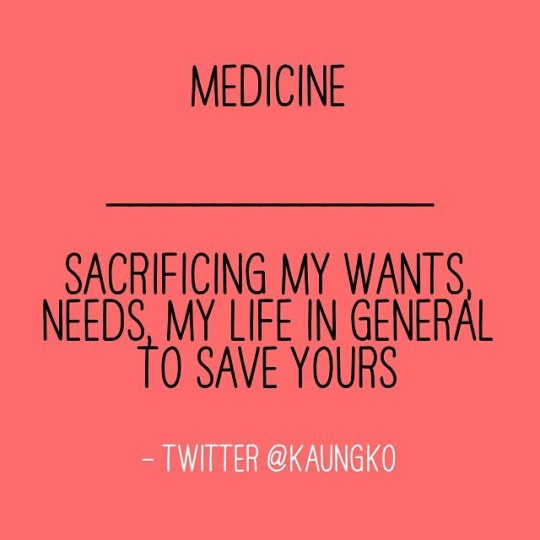#healthcarelife
Explore tagged Tumblr posts
Text
WE ARE OPEN Yes u heard right....We are ready to serve you with perfect SMILE..

Your safety is of utmost importance ti us,which is why we have implemented stringent infection control protocols in accordance with the highest industry standards.
We invite you to visit our clinic and experience the exceptional care we have to offer.Our friendly team is excited to meet you, address your dental concerns, and help you achieve the smile of your dreams.
Book Appointment
Call/Whatsapp-971-585087321 (04)5298054
Visit us- Shop no 02 ,Ground Floor , Sultan Business Center, Oud Metha, Dubai
#healthcaremarketing#healthcare#healthcaremanagement#healthcareprofessionals#healthcareprofessional#healthcareadministration#digitalmarketing#medicalmarketing#healthcareprovider#marketing#healthcareworkers#healthcareforall#healthcaredesign#healthcarereform#healthcarelife#doctors#healthcareassistant#healthcareworker#seo#socialmediamarketing#healthcarejobs#webdesign#healthcareindustry#healthcareit#nursingstudent#healthcareers#onlinemarketing#apparel#healthcarecosts#branding
0 notes
Text

Call for Abstracts Submit your abstract or panel session in the presence of experts and influencers. This means that if you want to present this year, you should submit you’re abstract right away. & be part of CME/CPD accredited 13th American Healthcare and hospital management Summit, which will take place from November 15-18, 2023 in Los Angeles, USA & Virtual. Abstract Submission Deadline is May 31, 2023 Get details on the symposium and a list of topics & submit your abstract here: https://health.universeconferences.com/call-for-paper/
#ImmuneSystem#LegalandEthicsHealthcare#ACP#DiabetesNursing#healthcenters#patientsafety#publichealthcare#nursing#Physician#healthcarereform#healthcarelife#healthcareproviders#gehealthcare
0 notes
Text

What is Healthcare Informatics
Healthcare informatics, also known as health informatics or medical informatics, is a multidisciplinary field that combines information technology, computer science, and healthcare to optimize the acquisition, storage, retrieval, and use of health information. The primary goal of healthcare informatics is to enhance the quality and efficiency of healthcare delivery, promote patient safety, and facilitate medical research.
Key components of healthcare informatics include:
Health Information Systems: The development, implementation, and management of electronic health records (EHRs), which are digital versions of patients' medical histories, diagnoses, medications, treatment plans, immunization dates, allergies, radiology images, and laboratory test results.
Health Data Management: Efficient storage, retrieval, and analysis of health-related data, including structured and unstructured data, to support clinical decision-making, research, and public health initiatives.
Clinical Informatics: Integration of information technology into clinical workflows to improve patient care. This includes the use of decision support systems, computerized physician order entry (CPOE), and other tools that assist healthcare providers in making informed decisions.
Telemedicine and Telehealth: The use of information and communication technologies to provide healthcare services remotely. This includes virtual consultations, remote monitoring of patients, and the exchange of medical information over distance.
Health Analytics: The use of data analysis and statistical methods to extract insights from healthcare data, enabling better decision-making, identifying trends, and supporting research.
Interoperability: Ensuring that different healthcare information systems can seamlessly exchange and use data. Interoperability is essential for the coordination of care across different healthcare providers and settings.
Health Information Exchange (HIE): The electronic sharing of patient information among healthcare organizations and providers, promoting continuity of care and reducing duplication of tests and procedures.
Bioinformatics: The application of informatics techniques to biological and genetic data, supporting genomic research, personalized medicine, and the understanding of genetic factors in health and disease.
Healthcare IT Security: Implementing measures to safeguard health information from unauthorized access, breaches, and cyber threats. This includes ensuring compliance with privacy regulations such as the Health
Important Information: Conference Name: 14th World Healthcare, Hospital Management, Nursing, and Patient Safety Short Name: 14NHPUCG2024 Dates: July 25-27, 2024 Venue: Holiday inn Dubai, UAE Email: [email protected] Visit: https://nursing.universeconferences.com/ Call for Papers: https://nursing.universeconferences.com/submit-abstract/ Register here: https://nursing.universeconferences.com/registration/ Call Us/WhatsApp Us: +12073070027/+442033222718
#healthcare #healthcareprofessionals #healthcareprofessional #healthcareprovider #healthcareadministration #healthcareforall #healthcaremarketing #healthcareworkers #healthcarelife #health #healthcareindustry #healthcareproviders
0 notes
Text
#healthcare#healthcareforall#healthcaredesign#healthcaremarketing#healthcareprovider#healthcaremanagement#healthcarereform#healthcarecosts#healthcareassistant#healthcareadministration#HealthCareprofessional#healthcarecostsareinsane#healthcareIT#healthcarewithaheart#HealthcareWorkers#healthcareprofessionals#healthcarelife#healthcarepowerof#healthcarefinance#healthcareproduct#healthcareworker#healthcareequipment#HealthcareExcellence#healthcareers#HealthCareTech#healthcarejobs#healthcareservices#healthcarenotsickcare#healthcaremanager#healthcarecompliance
0 notes
Text






Along with education, it is our responsibility to provide all the necessary facilities to the students for their better focus on their studies. Here are some facilities for international students in the USA.
For More Updates
https://uniabroad.io/
#Learningresources#Educationalresources#Successresources#internationalstudentlife#internationalstudent#studentloan#Financialtimes#Financialservices#Abroadstudy#Studyingabroad#Healthcareprovider#Healthcareproviders#Healthcareforall#Healthcarelife#Accommodations#Studentaccommodation#accommodations#usaindians
0 notes
Text
#healthcaresystem#healthcare#covid#healthcareindustry#healthcareforall#healthcareproviders#healthcareprovider#healthcareservices#healthcaremanagement#healthcarelife#healthcaretips#healthcaretech#healthcareisahumanright#qualityhealthcare#noinsurance#independentprofessional#gigworkers#freelancer#gigworker#noinsurancenoproblem#noinsuranceneeded#healthcareaccess#health#coronaviruspandemic#healthcareinnovation#healthcareprofessional#electionrally#hindoncrematorium#bhartiyajantaparty#mpfightscorona
0 notes
Photo

Calming the mind is Yoga.
https://seonet.bollywoodpasta.com/story/benefits-of-yoga-ayurveda-treatment-for-weight-loss/
0 notes
Photo

Passion keeps us going ... #healthcarelife #sacrifices #medicine #kmktalks (at Jersey City, New Jersey) https://www.instagram.com/p/BakTkJOh9NO/?utm_medium=tumblr
0 notes
Photo

#STNALIFE SVG, PNG and JPG
Direct link to this SVG:
https://www.etsy.com/listing/958377466/stna-life-svg-png-and-jpg?ref=shop_home_active_1
Direct link to our Etsy shop:
https://www.etsy.com/shop/WeLoveSVGs?ref=seller-platform-mcnav&page=1#items
#STNA#STNALIFE#healthcare#statetestednursingassistant#nursingassistant#cna#cnalife#cute#adorable#bun#mask#maskup#covid#covid19#coronavirus#glasses#sunglasses#life#healthcarehero#healthcarelife
0 notes
Photo

☝☝☝LINK IN THE BIO☝☝☝ Covid is still quite a big issue now. But every now and then we'd like to throw in a little humor to our experiences in the Covid Ward. Don't get us wrong, we're not complaining or anything! ⠀ 💉 Made for Nurses by Nurses 👕 Premium High-Quality Tees 👫 For ALL Genders 🌎 Ships Worldwide 🌈 Varying Colors to Choose from 👨👩👧👦 Different Sizes up for Grabs ⠀ Get yours now! ☝☝☝LINK IN THE BIO☝☝☝ ⠀ NOTE: Tee and print colors may differ from the pictures posted. Please follow the link to view the actual colors. All tees, hoodies, tank tops are printed by our partner Teespring. For questions about shipping and payment, please contact Teespring customer service. #healthcareinnovation #healthcarejobs #healthcareers #healthcareadministration #healthcarelife #healthcarereform #healthcaremarketing #healthcaremanagement #communityhealth #healthcareprovider #worldhealth #covida #coronavirusitalianews #covid19mx #cornavirus #viruses #contagio #covidwarriors #therealheroes #publicawareness #worldhealthday #intubation #letsfight #ourheroes #ambulanza #proudnurse #prenursing #nursinghumor #nursingschoollife #nursingstudentproblems https://www.instagram.com/p/CHJKKoqBmiN/?igshid=1gv5rcpquraty
#healthcareinnovation#healthcarejobs#healthcareers#healthcareadministration#healthcarelife#healthcarereform#healthcaremarketing#healthcaremanagement#communityhealth#healthcareprovider#worldhealth#covida#coronavirusitalianews#covid19mx#cornavirus#viruses#contagio#covidwarriors#therealheroes#publicawareness#worldhealthday#intubation#letsfight#ourheroes#ambulanza#proudnurse#prenursing#nursinghumor#nursingschoollife#nursingstudentproblems
0 notes
Photo

He is the same yesterday today and tomorrow #healthcare #tagstgram #healthcareadministration #healthcareprofessional #healthcaretips #tagstgramers #healthcaremanagement #healthcareassistant #healthcareprofessionals #healthcaredesign #healthcareforall #healthcareproducts #healthcareisahumanright #healthcaremarketing #healthcareprovider #healthcarejobs #healthcareworker #tagsta_medical #healthcareform #healthcarelife #healthcarereform #healthcareworkers #healthcareindustry #healthcareit #healthcarecareers (at New York, New York) https://www.instagram.com/p/CEj8TunJIt2/?igshid=tb9xehu2nqu7
#healthcare#tagstgram#healthcareadministration#healthcareprofessional#healthcaretips#tagstgramers#healthcaremanagement#healthcareassistant#healthcareprofessionals#healthcaredesign#healthcareforall#healthcareproducts#healthcareisahumanright#healthcaremarketing#healthcareprovider#healthcarejobs#healthcareworker#tagsta_medical#healthcareform#healthcarelife#healthcarereform#healthcareworkers#healthcareindustry#healthcareit#healthcarecareers
0 notes
Text

INJ. MEROPANEM 500 MG
.
.
.
healthcarelife #healthcarepowerof #healthcarefinance #healthcareproduct #healthcareworker #healthcareequipment #HealthcareExcellence
1 note
·
View note
Text
#healthcare#healthcareforall#healthcaredesign#healthcaremarketing#healthcareprovider#healthcaremanagement#healthcarereform#healthcarecosts#healthcareassistant#healthcareadministration#HealthCareprofessional#healthcarecostsareinsane#healthcareIT#healthcarewithaheart#HealthcareWorkers#healthcareprofessionals#healthcarelife#healthcarepowerof#healthcarefinance#healthcareproduct#healthcareworker#healthcareequipment#HealthcareExcellence#healthcareers#HealthCareTech#healthcarejobs#healthcareservices#healthcarenotsickcare#healthcaremanager#healthcarecompliance
0 notes
Photo

📸 Shot for @noheadachvisors - product link in bio ———— Washable PPE Mask made in the USA ———— 🎥📸 If you want a promo video or photos like these to increase your sales then get in contact with me. 👉Calderafilms.com 📩[email protected] ——- Services include: - Video Production - Photography - Animation - Explainers - Interviews - Marketing and Advertising —— #Healthcare #healthcareassistants #healthcareconsulting #healthcareforthehomeless #healthcarequality #healthcarelife #healthcareadvertising #healthcarevirtuallyanywhere #healthcareers #healthcarecompliance #Healthcare4All #healthcareapp #healthcarejustice #healthcaremanager #HealthcareInsurance #healthcareleadership #healthcareproducttester #healthcarearchitecture #healthcarecostsareinsane #HealthCareCenter #healthcarecebu #HealthcareBPO #healthcaretips #healthcareprograms #healthcaresalesmentor #healthcareaintfree #HealthCareprofessional #HealthcareDubai #healthcarejobs #HealthCareCareer (at Miami Beach, Florida) https://www.instagram.com/p/CAJkHJZFvv5/?igshid=16dlrl150w04x
#healthcare#healthcareassistants#healthcareconsulting#healthcareforthehomeless#healthcarequality#healthcarelife#healthcareadvertising#healthcarevirtuallyanywhere#healthcareers#healthcarecompliance#healthcare4all#healthcareapp#healthcarejustice#healthcaremanager#healthcareinsurance#healthcareleadership#healthcareproducttester#healthcarearchitecture#healthcarecostsareinsane#healthcarecenter#healthcarecebu#healthcarebpo#healthcaretips#healthcareprograms#healthcaresalesmentor#healthcareaintfree#healthcareprofessional#healthcaredubai#healthcarejobs#healthcarecareer
1 note
·
View note
Photo

Do you trust healthcare AI? #healthcare #healthcareers #healthcaretips #healthcareadministration #healthcareprofessional #healthcareforall #healthcareassistant #healthcaremanagement #healthcaredesign #healthcareprofessionals #healthcareproducts #healthcarejobs #healthcarecenter #healthcaresolutions #healthcarearchitecture #healthcaremarketing #healthcareworker #healthcareer #healthcareprovider #healthcarelife #healthcarereform #healthcareinnovation #healthcaretraining #healthcareisahumanright #healthcaretechnology #healthcaresimulation #verifyhealthcare #healthcareassistants #healthcarecareers #healthcareproviders https://www.instagram.com/p/B67GlVyHyua/?igshid=1jbf6ryuow1qz
#healthcare#healthcareers#healthcaretips#healthcareadministration#healthcareprofessional#healthcareforall#healthcareassistant#healthcaremanagement#healthcaredesign#healthcareprofessionals#healthcareproducts#healthcarejobs#healthcarecenter#healthcaresolutions#healthcarearchitecture#healthcaremarketing#healthcareworker#healthcareer#healthcareprovider#healthcarelife#healthcarereform#healthcareinnovation#healthcaretraining#healthcareisahumanright#healthcaretechnology#healthcaresimulation#verifyhealthcare#healthcareassistants#healthcarecareers#healthcareproviders
0 notes
Text
#healthcaresystem#healthcare#covid#healthcareindustry#healthcareforall#healthcareproviders#healthcareprovider#healthcareservices#healthcaremanagement#healthcarelife#healthcaretips#healthcaretech#healthcareisahumanright#qualityhealthcare#noinsurance#independentprofessional#gigworkers#freelancer#gigworker#noinsurancenoproblem#noinsuranceneeded#healthcareaccess#health#coronaviruspandemic#healthcareinnovation#healthcareprofessional#electionrally#hindoncrematorium#bhartiyajantaparty#mpfightscorona
0 notes